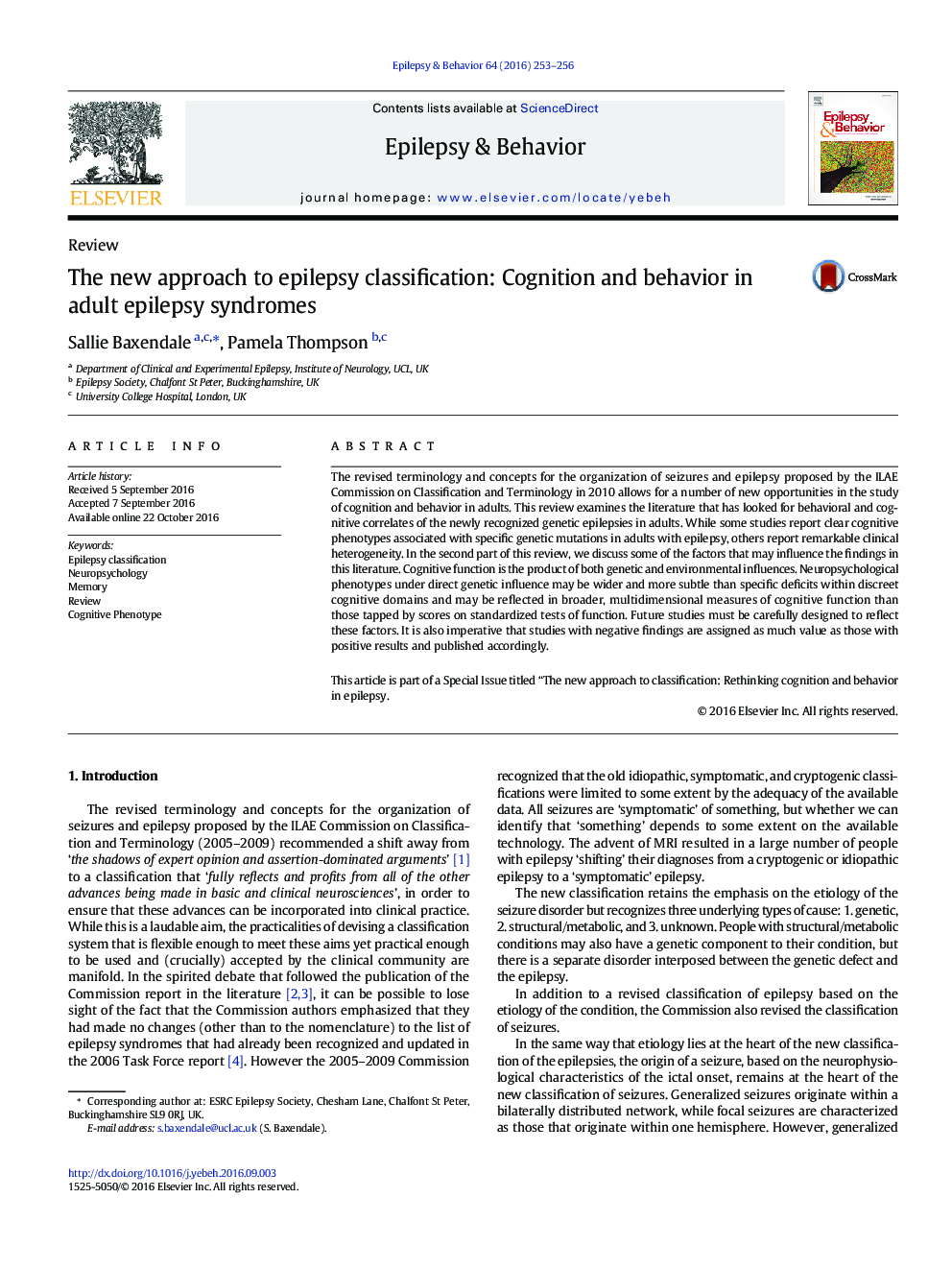| Article ID | Journal | Published Year | Pages | File Type |
|---|---|---|---|---|
| 5628075 | Epilepsy & Behavior | 2016 | 4 Pages |
â¢Cognitive and behavioral functions are the product of both genetic and environmental influences in people with epilepsy.â¢Standardized tests and traditional designs may not tease out genetic influences on cognition and behavior in epilepsy.â¢The phenotypical approach to the study of neuropsychological dysfunction may reduce the likelihood of type 1 errors.
The revised terminology and concepts for the organization of seizures and epilepsy proposed by the ILAE Commission on Classification and Terminology in 2010 allows for a number of new opportunities in the study of cognition and behavior in adults. This review examines the literature that has looked for behavioral and cognitive correlates of the newly recognized genetic epilepsies in adults. While some studies report clear cognitive phenotypes associated with specific genetic mutations in adults with epilepsy, others report remarkable clinical heterogeneity. In the second part of this review, we discuss some of the factors that may influence the findings in this literature. Cognitive function is the product of both genetic and environmental influences. Neuropsychological phenotypes under direct genetic influence may be wider and more subtle than specific deficits within discreet cognitive domains and may be reflected in broader, multidimensional measures of cognitive function than those tapped by scores on standardized tests of function. Future studies must be carefully designed to reflect these factors. It is also imperative that studies with negative findings are assigned as much value as those with positive results and published accordingly.This article is part of a Special Issue titled “The new approach to classification: Rethinking cognition and behavior in epilepsy.
